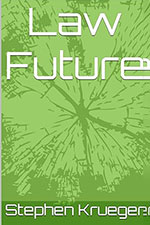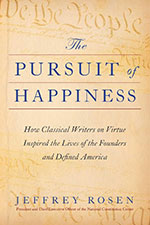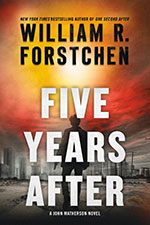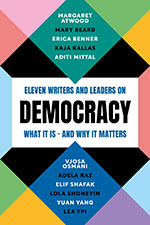 VERDICT: Not for Me, Maybe for You
VERDICT: Not for Me, Maybe for You
Law Future
By Stephen Krueger (Hong Kong: Crossbow Corp., 2022). 358 pgs. $30. Order, www.amazon.com.
Reviewed by Terrence L. Dunst
Law Future is not about the future of the law; it is a collection of science fiction stories with a legal angle. It is also an anthology of thoughts, personal biases, the author’s biographical notes, poems, short stories, novellas, and uncategorizable other writings: 358 pages of it not including a 19-page preface. If you like stories in which the super-talented, self-righteous, morally uncompromising, go-it-alone hero defeats the bureaucratic system and its inept and corrupt government officials, this book may work for you. If you want to be subtly and not so subtly preached at with personal political ideology, this book may work for you.
The single-spaced preface does a nice job of setting the stage, in that you brace yourself for the rest. The author begins by letting us know he has read a lot of science fiction. He also makes clear that he believes life was better in the 1930s, before Franklin D. Roosevelt ruined it, when, he believes, there was “widespread good English; no slovenly dress, no coarse public speech, and no vulgar public conduct; no television; litter-free and graffiti-free streets and parks; and location-limited and content-restrained outdoor advertising.” The government was small, and “Latin-language capability was expected of educated people.” (Unless, as he fails to mention, you were impoverished, standing in soup lines, watching your children go hungry, or were Black).
Want to Review a Book?
Please request a book and writing guidelines from the Wisconsin Lawyer managing editor at wislawmag@wisbar.org. Reviewers may keep the book reviewed. Reviews of about 500 words are due within 45 days of receiving the book. Reviews are published, space permitting, in the order received and may be edited for length and clarity.
Also in the preface is a two-and-a-half-page personal definition of “science fiction,” which sets the stage for the short stories and short novels that comprise the bulk of the book. The preface ends with opinions on writing and language, such as “English is the best language ever.”
The topics of many of the fiction stories will be familiar to lawyers in that most read like law school hypotheticals or court briefs and opinions. The subject matter follows common courtroom dramas, such as divorce, alimony, contracts, tort liability, theft, and so on, but also more philosophical themes, such as free speech, discrimination, slavery, extradition, and sovereign immunity. There are also familiar political themes underlying the dramas, such as corrupt and incompetent governmental officials, soft-on-crime do-gooders, abortion, execution, anti-metric system, “multi-cultural lunacies,” taxes, home schooling, activist judges; there’s even a little anti-Muslim rhetoric in one of the stories, in which Islam and the liberal wings of Christian religions have mostly died out in favor of evangelical Protestantism.
What makes these pieces science fiction is that they are set in the future and involve space travel, living in space, and life on other planets. So, for example, if a person from one planet marries a person from another planet, and then there is a divorce or bigamy, what venue and what choice of law will prevail? The legal analysis is then straightforward, based on the legal rules the author has created for those worlds.
Terrence L. Dunst, Univ. of St. Thomas 2006, practices law in St. Paul, Minn.
 VERDICT: Touchdown!
VERDICT: Touchdown!
The Pursuit of Happiness: How Classical Writers on Virtue Inspired the Lives of the Founders and Defined America
By Jeffrey Rosen (New York: Simon & Schuster, 2024). 365 pgs. $26.09. Order, www.amazon.com.
Reviewed by Douglas Bauman
Most Americans are familiar with the opening of the Declaration of Independence, which says that “all men” possess “certain unalienable Rights,” including “Life, Liberty and the pursuit of Happiness.” But I doubt that most people understand what “the pursuit of happiness” meant to the founding generation of the United States, and that gap in understanding is what this book seeks to correct.
Law professor and legal commentator Jeffrey Rosen set out to show that, to the founders, the pursuit of happiness meant the pursuit of virtue. Virtue was a favorite subject of the founders, and many of them recorded their own efforts to cultivate it. Thomas Jefferson, writing in response to a question from the head of a boarding school about enlightening his students, quoted from the Roman writer Cicero before summing up,
“[I]f the Wise, be the happy man, as these sages say, he must be virtuous too; for without virtue, happiness cannot be.” Thomas Jefferson and Benjamin Franklin created lists of virtues based on their reading, and in this book, Rosen adopted Franklin’s list as the guiding principles for each chapter. Each chapter focuses on one or two figures from American history and on the classical authors whom they cited in their pursuit of virtue. For instance, the chapter on temperance focuses primarily on Franklin and Pythagoras; the chapter on humility focuses on John Adams (who struggled with humility) and on Cicero, Pythagoras, Epictetus, and Seneca.
Along the way, the book also introduces less well-known figures from early American history, such as Mercy Otis Warren and Phyllis Wheatley, both talented women writers whose options were limited because of their gender and, in Wheatley’s case, her race. Racial inequality is a recurring theme in the book, cited as a clear blind spot in the founders’ conviction that “all men are created equal.” I found the inclusion of these lesser-known figures to be enlightening and welcome.
The book also moves beyond the founding era, to John Quincy Adams and then to Abraham Lincoln and Frederick Douglass before jumping ahead in the final chapter to the 20th and 21st centuries. The final chapter attempts to answer the questions of how Americans lost the founders’ focus on virtue as essential to happiness and what we can now do about it. Regardless of what you think about Rosen’s conclusions, the result is a readable and thought-provoking call to reexamine what it means to pursue happiness, for ourselves as individuals and for our nation.
Douglas Bauman, U.W. 1998, is a court commissioner and staff attorney for the Marathon County Circuit Court in Wausau.
 VERDICT: Not For Me, Maybe For You
VERDICT: Not For Me, Maybe For You
Five Years After
By William R. Forstchen (New York, NY: TOR Publishing Group, 2023). Novel. 343 pgs. $20.49. Order, www.amazon.com.
Reviewed by Dianne Post
This book’s well-worn dystopian plot is about recovery after an electromagnetic pulse attack that has wiped out all electrical systems. It’s the usual disaster, restructure, and rebuild with the inevitable power struggles. There is a military takeover, of course, and though violence is what got us into this mess, violence is the only way anyone can think of to get us out.
The author appears to be trying to pit anarchy against “law and order” and concluding that the solution is something in between, such as the mythical 1950s U.S. with echoes of Project 2025. Much of the culture wars and conspiracy theories appear in the story from a secret governmental cabal of chosen ones, a deep state, COVID and climate-change hoaxes, a “New World Order,” the real enemy in World War II, and Christian nationalism.
The evident ideological bent overpowers the story, which is just a long essay in which the author sees himself as the hero with the only solution. He’s right to encourage people to stand up and speak their piece and that power-hungry people do not make good leaders. But that point gets lost in all the propaganda.
Dianne Post, U.W. 1979, is an international human rights lawyer. She practiced family law in Arizona for 18 years, mostly representing battered women and molested children, and then in 1998 began doing international work mainly on gender-based violence.
 VERDICT: Touchdown!
VERDICT: Touchdown!
Democracy: Eleven Writers and Leaders on What It Is – and Why It Matters
(London, UK: Profile Book Ltd/Financial Times, 2024). 138 pgs. Order, https://profilebooks.com/work/democracy-2/.
Reviewed by James Casey
As any attorney who follows public affairs knows, democracy and the “rule of law” are major topics. The ABA Task Force for American Democracy has been in operation the past year. The November 2024 electoral cycle is very consequential. This book review examines Democracy, published by Profile Books Ltd. and the Financial Times (London).
Democracy is a collection of 11 essays – all written by women – who share their personal and professional thoughts on what democracy means to them. They are a diverse group – politicians, comedians, poets, novelists, academics, and journalists. Collectively, they challenge the reader to think emotionally and intellectually about the fragility of democracy. The book is small (4.5 X 7 inches) and is perfect for travel.
There is something here for everyone. Elif Shafak begins the collection by talking about the “Terra Incognito,” the unmapped territories that humanity is going through today. Our survival depends on our ability to recognize one another as human. Estonian Prime Minister Kaja Kallas provides four lessons based on her life growing up in a former Russian colony and concludes that it is not too late to protect democracies. The rule of law and security are the foundations of prosperity. Mary Beard, after an extensive discussion of Athenian democracy, concludes that there is more to democracy than voting (though that is important) and that democracy in theory is different than democracy in practice.
Lola Shoneyin explores the fragility of democracy in African nations. Alluding to when dictatorships topple democratically elected governments, she writes, “The sword decapitates the pen, spilling blood on every page.” Lea Ypi focuses on freedom, telling the reader that freedom really means global freedom and democracy really means global democracy. Erica Benner suggests that the successful Western democracies should listen to the newer democracies about how not to do democracy, particularly the expanding wealth gap. The latter may lead to social instability.
Margaret Atwood provides visual representation to explain how the “temperate zone” lies between totalitarianism, dictatorship, and chaos. In discussing the war in Afghanistan, Adela Raz points out that democracy as a political idea did not fail in Afghanistan – rather, the operational structures and processes put in place by the U.S.-led coalition failed. Aditi Mittal writes a short play involving a father and his daughter in India, discussing democracy. Very funny yet educational! Yuan Yang explains her journey from individual activity to joining outside groups and associations. “Joining” strengthens democracy. Closing out the collection, Kosovo President Vjosa Osmani tracks the journey of her country from living under a dictatorship (the Milosevic regime) to a democracy where women, and especially young women, have a vital role in the future development of their country.
This review merely scratches the surface. The reader is encouraged to explore these essays. Because an educated citizenry is essential for a functioning democracy, this collection advances education. Democracy is a fascinating read, and it has my highest recommendation.
James Casey, Dayton 1988, is a research contracts and data protection executive in San Antonio, Texas, and the academic community leader for the CUNY M.S. in Research Administration and Compliance Program in New York City. He is a member of BioMedSA and the Government-University-Industry Research Roundtable in Washington, DC.
» Cite this article: 97 Wis. Law. 56-58 (October 2024).
